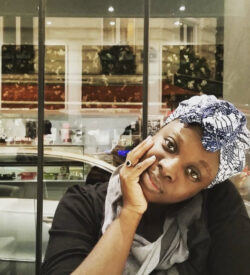Strengthening and interconnecting transformative social movements
We hear a lot about struggles with fragmentation within our movements and about the desire to make them more diverse, inclusive, and empowering. Some of the challenges involved are those of not reproducing forms of oppression, such as racism, patriarchy, or ableism within our movements themselves. This training aims to help us explore these challenges and to develop practices and strategies to build diverse movements capable of embodying active solidarity, and mutual empowerment.
We often bring our individual perspectives of power and the privilege we bear into our groups and organisational dynamics. We also need to think about them at a movement level and in building alliances and wider forms of collaboration. This training will create a reflective space in which we can explore the challenges this involves and begin to design and develop approaches for responding to them.
There are no ready-made recipes for practising solidarity and intersectional organising, therefore the training will be designed in a way that allows for deep reflection, identifying challenges and unhelpful organising patterns and will support participants in developing their capacity to respond to challenges and transform movement building cultures in ways that feel most empowering in the local context and with the communities involved. We want to collectively create a courageous space so that we can step out of our comfort zones and enable critical reflection on movement practices and cultures, starting on a personal level and moving to movement level.
We will explore how organising rooted in active and intentional solidarity can make our movements stronger and more resilient (rather than fragmented) and how we can practise intersectionality from a place of value alignment and vision for justice and joy rather than a fear of making mistakes, shame and blame.
The training assumes a basic literacy with power and privilege themes. We will cover a basic introduction to create common ground but we want to move beyond the basic level analysis and knowledge.
Key topics will include:
In the solidarity economy:
(See details of our approach to radical economics here)
Contact us
to apply

Location:
Hilal Demir, an anarcha-queer DJing at home is an activist, trainer, facilitator for 20 + years and has experience on organizing, strategizing on nonviolent direct action, campaign and social movement levels, working with power, active solidarity, resilience, repression and security. She is passionate about leading informal learning experiences, community organizing, group dynamics and organisational cultures, supporting activists and organizations to build long lasting transformative social movements for a just future.

Location:
Ilaj’s background is in grassroots organising, involving them in various strands of social movement work for nearly two decades, mostly in Eastern and Southern Europe. In more recent years, they have turned their attention to broader European movement building as part of the Ulex core team, where they design programmes, coordinate training teams and facilitate on a wide range of training courses. Ilaj is an experienced trainer with a broad range of skills, particularly in holding space for collective exploration of burnout, weathering repression, navigating trauma and cultivating solidarity in social movements. They are passionate about working with body awareness as a radical means of deconstructing internalised systems of oppression. They have been exploring the intersection between transformative somatics and political organising for a number of years.

Location:
Binta wears many hats – educator, facilitator, organizer, activist, social entrepreneur, and mental health advocate – in support of community-led initiatives focused on social and climate justice. She has 10+ years experience working internationally on issues related to digital literacy, educational, social, and economic inclusion of marginalized communities, capacity and community building, and intercultural communication. In addition to organizing and working with anti-racist and feminist organizations in France, her current work focuses on helping movements structure and grow their impact, training youth leaders and activists in campaigning, community building and mobilization, and building networks of peer learning, support, and empowerment for marginalized communities.

Location:
An Maeyens (she/her) is a facilitator and trainer with over two decades of experience in grassroots movements. She specialises in creative, inclusive agenda design and brings deep expertise on group culture, power dynamics, and transformative learning. Starting of in the anti-globalisation movement she has trained thousands in civil disobedience, supported international coalitions, and developed multilingual training programmes and toolkits. Her work spans movements, cultures, and countries, guided by a commitment to care, accessibility, and leaderful organising.

Location:
Ari’s activism began in 2002, at age 16, as a Bosnian refugee in Canada, where they founded and coordinated a group for LGBTIQ high school students and allies. They were a co-founder and leader at kolekTIRV in Croatia and Trans Network Balkan, involved in community organizing, advocacy, program management, team coordination, capacity building, education, media work, campaigns, events, fundraising, etc. In 2024, they joined the Supervisory Board of the Croatian Trade Union Collective of United Precarious Workers and Activists (SKUPA).
Beyond the Balkan region, Ari served as a Board member at Transgender Europe (TGEU), where they held roles as Secretary, Treasurer, and later Co-chair. They have also been a trainer with the Center for Artistic Activism and served on the Advisory Committee and since 2022 as a Community Care Facilitator at FRIDA — The Young Feminist Fund. Since 2024 they are the Operations Manager at Global Philanthropy Project.

Location:
Sergio (all pronouns) was born in Romania and migrated to Germany in the early 2010s. In the past, he was a social worker with homeless people and a social consultant for Eastern European migrants for various organisations. Trained as a filmmaker, he spent two years making a documentary about the ‘civic reawakening’ in Romania and the waves of protest it brought with it. In connection to this, Sergio is currently co-steering the development of an online open-source participative knowledge production platform on activism in Romania. Over the past nine years, Sergiu has offered his skills to various journalists, grassroots collectives and campaigns, mostly working within the labour rights, climate justice, international solidarity and anti-authoritarian movements in Germany and Romania. Nonetheless, his biggest focus since 2020 has been his work as an organiser with the anarcho-syndicalist Free Workers Union, where he focuses mostly on organising Romanian migrant workers on construction sites, in factories and in the agricultural field.

Location:
Linzy Na Nakorn is a movement director, politicised somatics practitioner, community organiser and facilitator. For the past decade she has been facilitating movement, body work and creating theatre, dance and participatory performance that advocates for and organises with communities in pursuit of housing, disability and racial justice. Her movement practice focuses on trauma-informed approaches to building resilience, capacity and joy via way of the body for personal, interpersonal and community sustainability. Linzy was a Co-Director of The Big Ride for Palestine in partnership with The Gaza Sunbirds, Native Woman Ride and Middle East Children’s Alliance; using cycling as a tool for mobilising active solidarity and in support of campaigning for the rights and self-determination of the Palestinian people. Linzy is part of a UK network of activists and artists advocating for Radical Care – supporting organisations, researchers and institutions to work towards system change in societal approaches to labour, leadership and access.

Location:
Jeroen (he/him pronouns) has been involved in grassroots social movements for more than two decades now, starting back when he was fifteen. Throughout the years the fights for “climate justice” and “migrant justice” have been consistently on top of the list of struggles that make his heart beat faster. A key transformative moment for Jeroen was reading Paulo Freire’s Pedagogy of the Oppressed. Freire’s revolutionary pedagogy gave him a language to support the creation of emancipatory learning environments, rooted in a desire for collective liberation. Jeroen has also been exploring in depth Boal’s Theatre of the Oppressed and Joanna Macy’s The Work That Reconnects among other methodologies to build his trainer’s toolkit. Inspired by the liberatory possibilities of these traditions, he started an organization with a friend, LABO vzw, based in Belgium, where he has worked as a trainer and campaigner between 2013 and 2023.

Location:
Ella brings more than 10 years’ external experience working with not for profit and community based organisations across diverse themes including: advocacy for migrant communities; local community engagement in national policy making; and structural relationships between poverty and disenfranchisement, and education and poverty. Immersed in critical theory in her early 20s she brings a holistic and questioning approach, and is passionate about systemic solutions that centre relationship and interconnection between ecology and society. A long standing member of the collective, Ella has been part of the core team since the inception of the Ulex Project. Her work bridges facilitation, developing project partnerships, governance, strategy, operations, and project and programme evaluation. She has developed and overseen more than 70 partnerships with a range of different actors across European social movements.
Ulex: Latin (argelaga Catalan, gorse English) noun:
1. A thorny-evergreen flowering shrub, with a high capacity for regeneration and resilience. Its seedpods open in contact with fire and it reshoots from charred stumps. A successionary plant that grows well under challenging conditions. It improves soil fertility through nitrogen fixing, preparing the way for renewed biodiversity.
2. A traditional choice for igniting fires. Burns hot and bright.
3. A networked project adding nutrition and fertility to European social movements through training and capacity building. It kindles the realisation of social justice, ecological intelligence, and cognitive vitality.